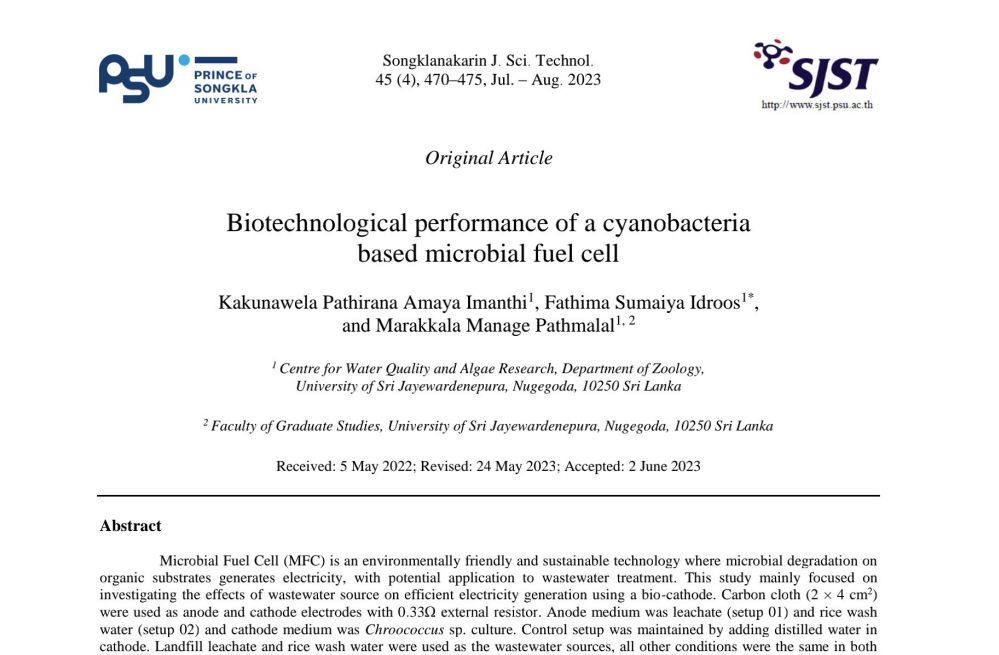Kakunawela Pathirana Amaya Imanthi, Fathima Sumaiya Idroos and Marakkala Manage Pathmalal
published in Songklanakarin J. Sci. Technol.
Microbial Fuel Cell (MFC) is an environmentally friendly and sustainable technology where microbial degradation on organic substrates generates electricity, with potential application to wastewater treatment. This study mainly focused on investigating the effects of wastewater source on efficient electricity generation using a bio-cathode. Carbon cloth (2 × 4 cm2) were used as anode and cathode electrodes with 0.33Ω external resistor. Anode medium was leachate (setup 01) and rice wash water (setup 02) and cathode medium was Chroococcus sp. culture. Control setup was maintained by adding distilled water in cathode. Landfill leachate and rice wash water were used as the wastewater sources, all other conditions were the same in both setups. Highest electricity generation and wastewater treatment were recorded in setup 02 with rice wash water. The maximum voltage was 1,111 mV with current 3,366.67 mA and 467.55 mW m-2 power density. The wastewater treatment efficiencies reported as reductions in COD, Nitrate, Nitrite and Orthophosphate were 61.94%, 61.01%, 55.14%, and 26.01% in setup 02. These study outcomes disclose that dual chamber MFC with rice wash water as the wastewater source has potential for simultaneous power generation and wastewater treatment.


